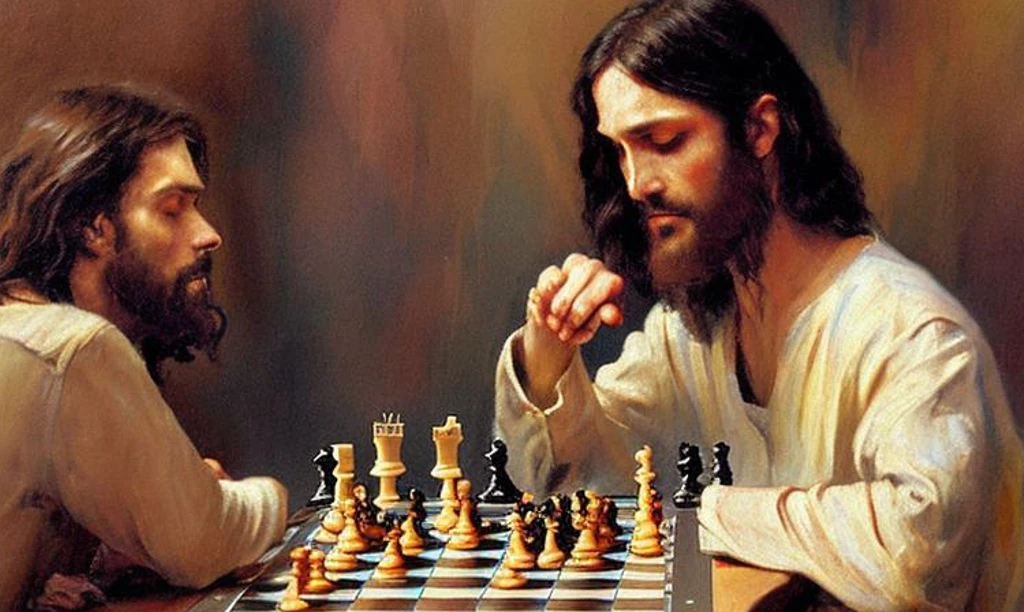Humans are naturally social creatures, and they’ve got this strong sense of moral outrage. Back in the day, a bunch of early Gods were mainly all about fear – more “wrath” than anything else. Think of that Semitic deity who went from being the Hebrew Jehovah to part of the Christian Trinity and also the Muslim God, possibly influenced by the Alexandrian Serapeum. This God had a real knack for getting upset over every little thing people did and cooking up plans for murder and vengeance. It was like divine drama on a grand scale.
Now, this wasn’t just about a moody God – it was a reflection of people’s unfiltered dislike for anything different. Strange folks, cheerful vibes, unfamiliar customs – it all got under their skin. So, they crafted this image of a God who was always ready to throw a fit over the smallest stuff, from drowning the whole world to setting cities on fire. It was essentially humans projecting their own fear and distrust onto a celestial figure, giving them an excuse to act out their aggression, channeling their inner ape, if you will.
Surprising as it might be, many early Christians – before the whole Trinity thing became official – didn’t buy into the idea that Jehovah was God. They saw Christ as a rebel against Jehovah, a hero rescuing humanity from him, kinda like Prometheus against Jove. These beliefs stuck around for a solid millennium, held by a bunch of persecuted groups, from the Albigenses to the eastern Paulicians. The Catholic church even had to ban regular folks from reading the Old Testament because of the arguments these groups had against the Hebrew God. And when I say “Christian” in this context, I mean the Trinitarians who followed the official creeds.
Here’s the paradox – the very things associated with the True God, like decency, discipline, and cherishing familiar stuff, somehow ended up unleashing cruelty and tyranny. It’s like a mom trying to protect her sleeping kid with a light and accidentally burning down the house. But right up to today, the idea of God as a vengeful, persecuting force still lingers in religion. Only recently have people started feeling a bit awkward about worshiping a deity less tolerant and kind than themselves. Anglican literature, for instance, reflects this shift, acknowledging the tension.
Back in 1863, Bishop Colenso of Natal got in hot water for saying God is all mercy, not a hothead. The Dean of Cape Town wasn’t having it, arguing that God gets angry because of sin, a big insult to His Majesty. Then in 1870, the Rev. Charles Voysey found himself on trial for challenging the church’s insistence on God’s fierceness. This case might not be in your usual church histories or encyclopedias, but it’s an eye-opener. These days, the church might not go after folks like Bishop Colenso or Mr. Voysey, but back then, they were making a statement about the kind of God they believed in.
If we think about it, the idea of God being all about fear doesn’t really align with the whole concept of growth and evolution. I mean, if God is the creator and we’re the creation, it makes sense that He’d be rooting for us to develop and evolve, right? Fear isn’t exactly the best motivator for growth. It’s more like a roadblock.
Consider this: for us to truly progress, there has to be an environment that fosters change. Love and mercy are way more conducive to that than fear. If God’s all about fear, it’s like saying He wants us constantly on edge, afraid of making a move. But that’s not how growth happens. Growth is about stepping into the unknown, embracing change, and learning from experiences.
Love and mercy, on the other hand, create a space for us to thrive. When we know we’re accepted, forgiven, and supported, it’s a game-changer. We’re more likely to take risks, try new things, and ultimately, evolve. It’s like the difference between being stuck in a rigid, fear-driven mindset and having the freedom to explore and grow.
So, if we imagine God as this force that wants the best for us, it’s got to be about change, love, and mercy. That sets the stage for a journey of growth and evolution rather than a constant struggle fueled by fear. It’s a shift from a God who’s always upset and ready to punish to one who encourages us to move forward, learn, and become better versions of ourselves.
